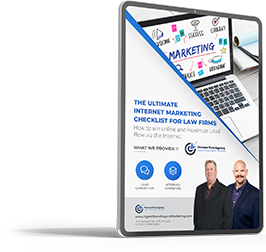
SEO or Search Engine Optimization may be a confusing concept to many who aren’t technically-inclined. While these three words seem intimidating, SEO really is a simple concept. Basically, SEO is all about using targeted, relevant keywords in your website, to make sure that people using search engines like Google, Yahoo!, and Bing can easily find you. Specifically, you want to make sure that when someone puts in something like “insurance agent in [your city]” your website is one of the first (or the first) result in Google that they see and hopefully, click on.
Why is SEO necessary? Well, studies show that the first result on Google search pages usually get about 33% of total traffic. That means the higher you are on the search rankings, the more people go to your site and the more leads you get.
So, let’s talk on-page optimization. Now, first of all, on-page SEO (as opposed to off-page SEO) simply means all the things you do to your own site to optimize it. It’s all about how you use keywords, where you use them and how you write your content so search engine know what you’re all about. When you start your on-page optimization efforts, there are three key things you should remember.
1) Add Your Keywords to Five Important Places
While it may seem like you should populate your site with all your keywords all over the place, that’s actually not a good idea (we’ll talk about that later too.) Really, if you want to optimize your site, there are really five key places where you need to put your keywords:
- URLs – Your website address. This includes your main domain and the pages. Don’t just name the individual pages “Page 1”, “Page 2” etc.
- Titles – Your titles are what show up in search and the first thing people (and search engines) will see.
- Meta Description – This is a short description of what your site is about.
- Alt Text – All images on your site should have an alt text, because, after all, search engine crawlers can’t actually see images.
- Content – Of course, your content should also use your keywords.
{{cta(’11b7cc27-a073-4753-a982-9e2437909e07′,’justifycenter’)}}
2) Avoid Keyword Stuffing
In the case of on-page SEO, more is not always better. Don’t be tempted to use your keywords over and over again, all over your site. This is called keyword stuffing. Search engines already know this tactic and may actually penalize your site.
Also, make sure you use keywords naturally. Google especially has been getting better at detecting if a keyword is being used in the right way or just added to increase ranking. Use the keyword as you would in a normal sentence. If you can’t seem to do this, then perhaps you need to rethink your content. In fact, it may not even be aligned with what your ideal customers are searching for.
3) Create a Site for End Users, not Search Engines
At the end of the day, it’s really all about your end users, i.e., the people that want to go to your website and read about what you have to offer. A search engine only brings them there and SEO ensures that they can easily find you, but they still need to be able to figure out what you do and how you can help them. Make browsing your site easy, so they can quickly find the relevant information. If they take a look at your site and then quickly leave because they can’t understand it or have a hard time navigating it, then you would have wasted your time trying to optimize it in the first place.
On-page optimization may seem intimidating, but it’s not as complicated as you may think. Small changes you can make to your site can actually make a big different, boosting your ranking and helping potential clients find you.
{{cta(’11b7cc27-a073-4753-a982-9e2437909e07′,’justifycenter’)}}





